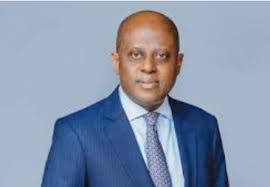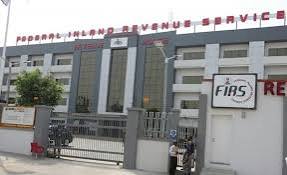The Central Bank of Nigeria (CBN) is not defending the naira with foreign reserves, its Governor Olayemi Cardoso, said yesterday at the ongoing Spring Meetings of the International Monetary Fund (IMF)/World Bank in Washington DC.
Cardoso said: “Defending the naira seems to be a prevalent theme. Let me be very clear: it is not our intention to defend the naira.”
He acknowledged recent discussions on declining reserves, but argued that “defending the naira goes against our core philosophy and policy. We want a naira that performs based on market forces, as long as we have a vibrant foreign exchange market.”
Cardoso, who acknowledged the past reliance on Bureau De Change (BDCs) to meet forex needs for essential purposes, like education and travel, said the bank has shifted towards a market-driven approach.
“The recent changes in our reserves are not for defending the naira”, the CBN boss clarified, adding “they are for settling obligations that were due. After all, that’s the primary purpose of holding foreign reserves.”
He highlighted the importance of collaboration with the federal government, particularly regarding fiscal policy. “Monetary policy is just one side of the coin. We need a strong handshake with the fiscal authorities he stated.”
The governor pointed out to specific examples of cooperation, such as advocating for the release of fertilizer reserves held by the previous administration to enhance food production and address food inflation, which he acknowledged falls outside the direct purview of the CBN.
“The issue of Ways and Means [borrowing by the government from the CBN] is no longer an issue,” Cardoso declared, indicating a key point of contention has been addressed.
The CBN governor defended his decision to embrace orthodox central banking practices, which included a substantial interest rate hike of 600 basis points within a short period. He acknowledged the difficulty of the decision but insisted that it is necessary to build confidence in the naira
Cardoso pledged increased communication with Nigerians and stakeholders to manage expectations.
“We want Nigerians to be realistic. The Monetary Policy Committee (MPC) has consistently explained the rationale behind our actions,” the CBN boss asserted.
He promised to strengthen communication channels and utilize various platforms to improve transparency.
Expressed satisfaction with the early results of his policies, he said: “Within two months of taking office, the naira was considered the worst performing currency globally. Within six months, it became the best performing.”
Cardoso stressed the importance of trust in achieving policy objectives.
“Boldness alone is not enough,” he cautioned, adding that “without trust, even the most well-intentioned policies will underperform. There seems to be a disconnect between public expectations and the realities of what the CBN can achieve.”












